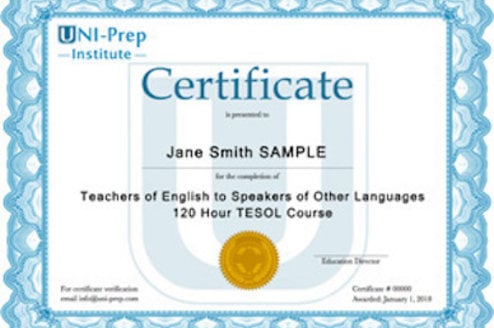How to Choose a TEFL Program
Choosing the right TEFL course is essential. As you research and compare TEFL programs, make sure it matches the following criteria:
- Accredited and recognized: To prove your certification is accredited, make sure your TEFL certificate is approved by independent bodies like ALTE, English Profile, QuiTE, British Council, NCFE, ACCET, IATEFL, ODLQC, ACTDEC, or affiliated with a recognizable university.
- Meets international standards: 120 hours is the golden number for a TEFL course! The industry standard includes 100 hours of training, plus 20 hours of teaching practice, although 6 is the minimum
- Offers live teaching practice: Your course must incorporate at least 6-20 hours of live teaching practice. Many online TEFL courses also incorporate live teaching practice in their practicum!
- Qualified instructors: Trusted courses are taught by a university-level instructor, with experience in teaching English and training teachers.
- Strong level of support: Job placement assistance, referrals to recruiters and top schools, and even interview help can go a long way!
Our database of online, in-class, and accredited TEFL certification programs will help you gain the teaching credentials you need.
Should you get certified online or in-person?
Choosing between an online and in-person TEFL course depends on your goals and lifestyle.
Online courses are flexible and budget-friendly, allowing you to learn wherever and at your own pace. Since lectures are recorded, you can fit your studies around other commitments like work or school. However, they may not be as immersive as an in-person course, especially if you’re aiming to teach in a specific country.
If you want the best of both worlds, consider a hybrid TEFL course, which combines online lessons with in-person teaching practice for a more rounded experience.





























